«It’s one of our ideals, our wish, that one day in the factory in Ukraine we will be able to build the new Bayraktar Kizilelma, the unmanned fighter», — Baykar CEO
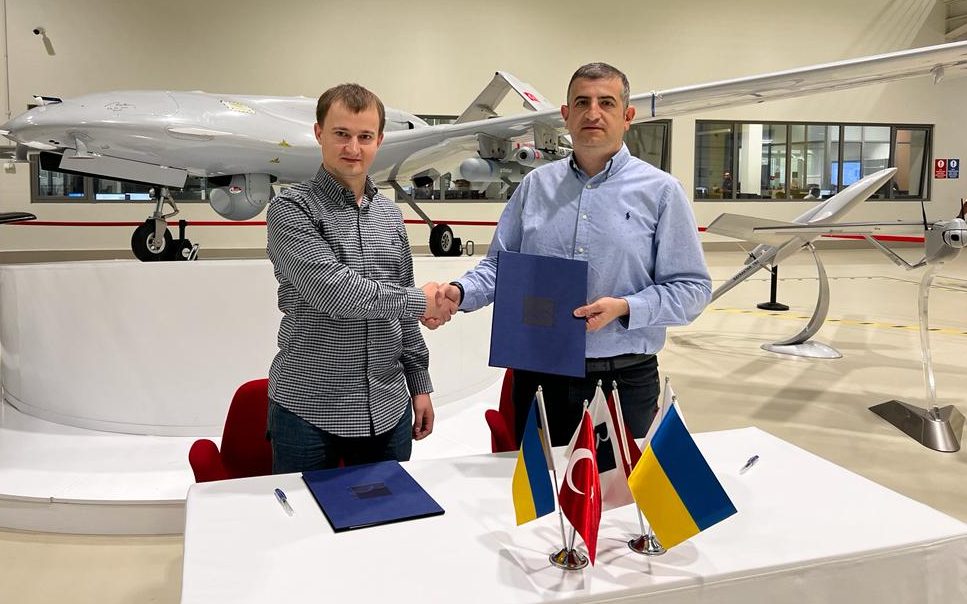
From attack UAVs to an unmanned fighter. The Turkish company Baykar intends to build in Ukraine not just a factory for the production of Bayraktar TB2 attack drones, as previously stated by Vasyl Bodnar, the Ambassador of Ukraine to Turkey. In an exclusive interview with the Come Back Alive Foundation, Haluk Bayraktar, Baykar CEO, said that in the future the company also plans to assemble Bayraktar Akıncı and Bayraktar Kizilelma — a new unmanned fighter jet — in Ukraine. For this purpose, as of August 2022, the partners have already started construction of a factory, a research center and an advanced production center on the territory of Ukraine.
What can be expected from further cooperation? And what will be Ukraine’s role in engagement of Bayraktar TB2 and Bayraktar Akıncı strike drones? Haluk Bayraktar, Baykar CEO, answered these questions in an interview with Taras Chmut, director of the Come Back Alive Foundation.
— First of all I would like to thank you for finding time to meet us, talk about the future, and talk about the projects that were finalized. I would also like to thank you for your long standing support in this war. Your company is almost 40 years old now. You started as a car parts manufacturer but switched to UAV production. What led to this switch? Why did you change your specialization and start producing strike drones?
— Yes, first of all thank you for visiting us. We, as Baykar, are delighted with what you are doing in Ukraine, your successful work in Ukraine. Specifically for Baykar, it was established as an automotive parts manufacturing company. It was a small engineering company that was founded by Özdemir Bayraktar, who is my father. He was a mechanical engineer, but at the same time he was an amateur pilot. He used to fly single engine planes and during our childhood we all together with my family used to build model planes and fly them. So my father was a very enthusiastic engineer and he was very interested in flying, you know, aerospace engineering, designs of new airplanes. So then when the second generation, me and my brother Selçuk, came to the age of working under Baykar, Selçuk was doing his graduate years in the United States [and] I was also back in the US. And we all together wanted to do something new in Turkey.
And in Turkey when you look at the aerospace industry there was a time period when the Turkish republic was established there [were] some embarkments and new acts on building our own planes, but then it all stopped. So we altogether as a family thought we should change the game and restart again and do something, not the things that the world is already doing, but do things that are innovative in airspace, which will [put] our country in the competition again. So in that regard altogether with the family — and Selcuk has a very good technical background, he has University degrees from the best universities in the US. My father wanted us not to be living in the US and working there, but to come back and work for [our] own country.
So we all together started working and developing unmanned aerial vehicles, totally with our own capital. So, 7 years we have spent in this area. [We] started with small scale hand-held launch planes. We were very small — we were about 5-6 people when we started Baykar. This is the year of 2002 [that] we started. So after years of research we were very successful in the mini UAV development. We managed to deliver our mini UAV systems to the Turkish military in the year 2007. So it was a long time of research and in our research we focused a lot on the flight and control systems on the software and electronics side. We focused a lot and worked a lot on that one. So UAVs for Baykar actually, you know, represent the challenge for Turkey and similar countries that we can be back in this race again at the end, at the final point, and we can compete with the world.
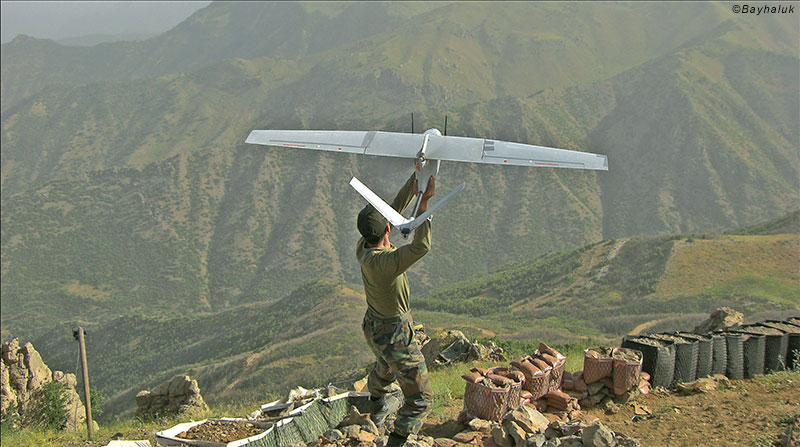
And also if you look at these technologies they are very limited. You cannot buy them as you like. They are very limited with regulations. They don’t sell it. So even with your money you cannot get them. So we wanted Turkey to be self-sufficient, independent, [and] to give Turkey the most high-end technology in that regard. And also it’s not only for Turkey but for the countries that we have brotherly and good relationships [with]. Otherwise even if you have the means and money you can still not have access to them.
That was our challenge and was our main motivation. We knew it would be a new spark in Turkey 20 years back. And this is in our speeches and even in our academic publications. This is kind of a spark for a country to showcase a technology [that’s] very high end, so that everyone feels proud of it and they believe that they can do something new for their country as well. So that’s why, you know, we embarked, we started on this one and we totally then switched our focus on UAV technologies after the automotive business action.
— Your company is one of the first ones in Turkey to have entered the world markets. How many countries do you work with and to how many do you sell your products?
— Actually, you know, once we developed our products, once we fielded them with the end users the product [got] better with feedback. The end users use it, it becomes more reliable, they tell you what to develop more. So in that fashion we as Baykar all kept working in the field, with the military, together side by side. We were not sitting in our offices or in our factory. We just moved to the field, worked with them together [for] years. Turkey was facing very harsh terrorism. For the last 40 years every day our soldiers were dying. It was a big problem, a very big problem for us. So we worked with our soldiers side by side and our products proved to be very good and we improved them with the feedback. And then once the product proved itself on the operational field then the foreign interest started coming.
Our first export customer — we started with mini UAV and moved on to Bayraktar TB2 scale, and then we moved on to higher end strategic and now we are doing this unmanned fighter jet. So once you prove these products with the customer, the foreign interest is there. Because the world has a big need for such platforms. Such platforms that give you a force multiplier effect, Which can do long hours, endurance, without risking your soldiers — human lives — and you can do a lot of different varieties of missions with them. So our first export customer was Qatar. We exported our mini UAV, not even the Bayraktar TB2. In 2012 we exported our mini UAV to Qatar. And then Bayraktar TB2 was fielded in the year 2015 —It started operations. And after that our first customers for Bayraktar TB2 were also Qatar and then Ukraine actually. So once these products prove themselves they find their place in the export market.

And right now — you know, our first customers were Qatar and Ukraine — Ukraine specifically is very interesting. No other country other than Turkey ever accepted cooperation with Ukraine on the field of armed UAVs. It was only Turkey who accepted to work on this technology. And also, between Ukraine and Turkey, Bayraktar TB2 became one of the main elements that binds, that also makes our cooperation on the field of aerospace and defense closer, more complimentary, [and] much more projects are followed by actions. So you need one success story there for the others to follow and Bayraktar TB2 was kind of that story within the relations of Turkey and Ukraine. We created a lot of different projects, a lot of bilateral international agreements between Ukraine and Turkey, and it is a very fruitful cooperation between our countries actually.
— How did the idea occur to make Bayraktar appear the way it is? And what was the length of time between the idea and the maiden flight?
— Actually, you know, Bayraktar means «the person who carries the flag». Our surname means that. So we put the name Bayraktar on all the products that we make. In the regard that they carry a flag, they have a mission and a vision for the country and for friendly countries as well. And as I’ve said, once we started we focused [on] the most highly valued items in the UAV field — the flight control systems. The software and the electronics side. And we focused with our team on these main critical items because, not only the platform, but also very small details of these platforms, if it is armed UAV or if it is [unarmed] UAV they don’t sell them to you. They are limited.
So if you need to build a very successful UAV – by the way it is a really unique and newly emerging industry — it’s not like an automotive industry where everything is settled, you can buy subsystems and parts, assemble them and make something work. In this industry you really need to develop the subsystems in a tailor-made fashion, to optimize it. It should be reliable. The end user should feel it’s reliable, and it should be a statistically very reliable platform for it to be effective in the field. So each subsystem of Bayraktar TB2 — all the main critical subsystems — are developed and made in-house in that regard.
— How many UAVs does the factory produce on average right now?
— So about Bayraktar TB2… when we started we were only doing 1 Bayraktar TB2 per month. That was the capacity of our company.
But with every year, with new investments, right now we came to a point where every month we can manufacture 20 units of Bayraktar TB2.
This means every one and a half days, from this factory, you have a new Bayraktar TB2, which is a good rate. This is the rate that we ramped up to this level this year. And next year it will be even more, actually. So we want to build them in much higher quantities so we are doing the necessary investments in that regard.

— You have around 2500 employees. How many of them are involved in R&D?
— You know, right now, Baykar is a company where we have young and dynamic engineers and technicians.
Our average age is about 30 years old. Every year we accept more than 1200 university students to do internships here.
And right now Baykar [has] a total of 2500 people. Half of this number is, kind of, engineers and pilots. The other half is technicians. So we can say we have more than 1000 people in the process of development of the system. So we have more than 1000 people in that regard.
— The modern model of the complex [TB2] has performed well in, first of all, the war in Ukraine. Do you receive any feedback and does the complex change based on the results of its performance in Ukraine?
— You know, Bayraktar TB2 has been operational for 7 years. It has been used and fielded in many different environments.
Hot environments, cold environments, operations against terrorist activities. It was fielded in Azerbaijan, in some different African countries, so we have seen a lot of different environments, different operational areas.
And in that regard there is, you know, it’s similar in every technology — like cell phones, you have updates to the software, updates to the hardware. It is continuously updated depending on the dynamics of the environment. We have released hundreds of software updates, hundreds of hardware upgrades. To keep the fleet alive and reliable you have to update and develop it continuously. And it is still going on. Of course now in Ukraine the war is very challenging.
It’s a very big scale and it has its own dynamics and there are a lot of things emerging from it — and of course there is feedback. We as Baykar have trained Ukrainian military before the war so they are totally operating the systems and we as Baykar are giving technical support to them so naturally there are a lot of different updates to the system. It is to keep the system alive and to support the operations
— How, in general, will the Russo-Ukrainian War influence the development of strike drones worldwide in the future?
— You know, Bayraktar TB2 — actually, before, these types of unmanned systems were not used much in the conventional type of warfare environments. Starting with the operation in Syria, and then the Nagorno-Karabakh operation in Azerbaijan, this type of system proved not only valuable in asymmetric warfare environments but also in conventional types of warfare as well. Because it gives you 24 hour situational awareness, without risking human lives, to conduct precision engagements; it helps other military assets to be more effective. So in that regard, unmanned systems, especially in the war in Ukraine, proved that every country needs to have in its inventory such capabilities. Without it you are kind of, you know, it gives you a clear image of the field and very different capabilities that will force multiply the conditions. So the war in Ukraine proved these assets are necessary in the field and we can say that.
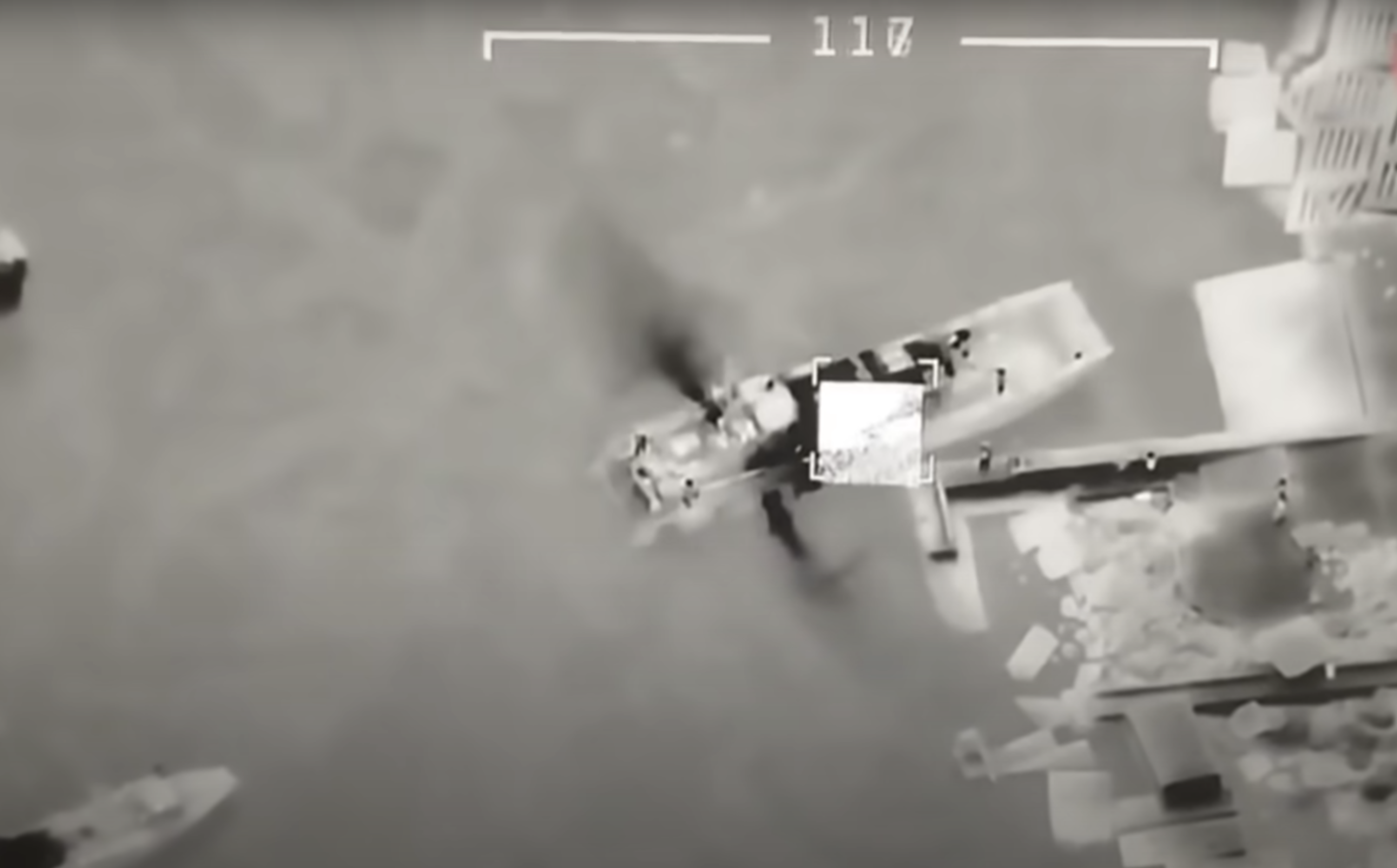
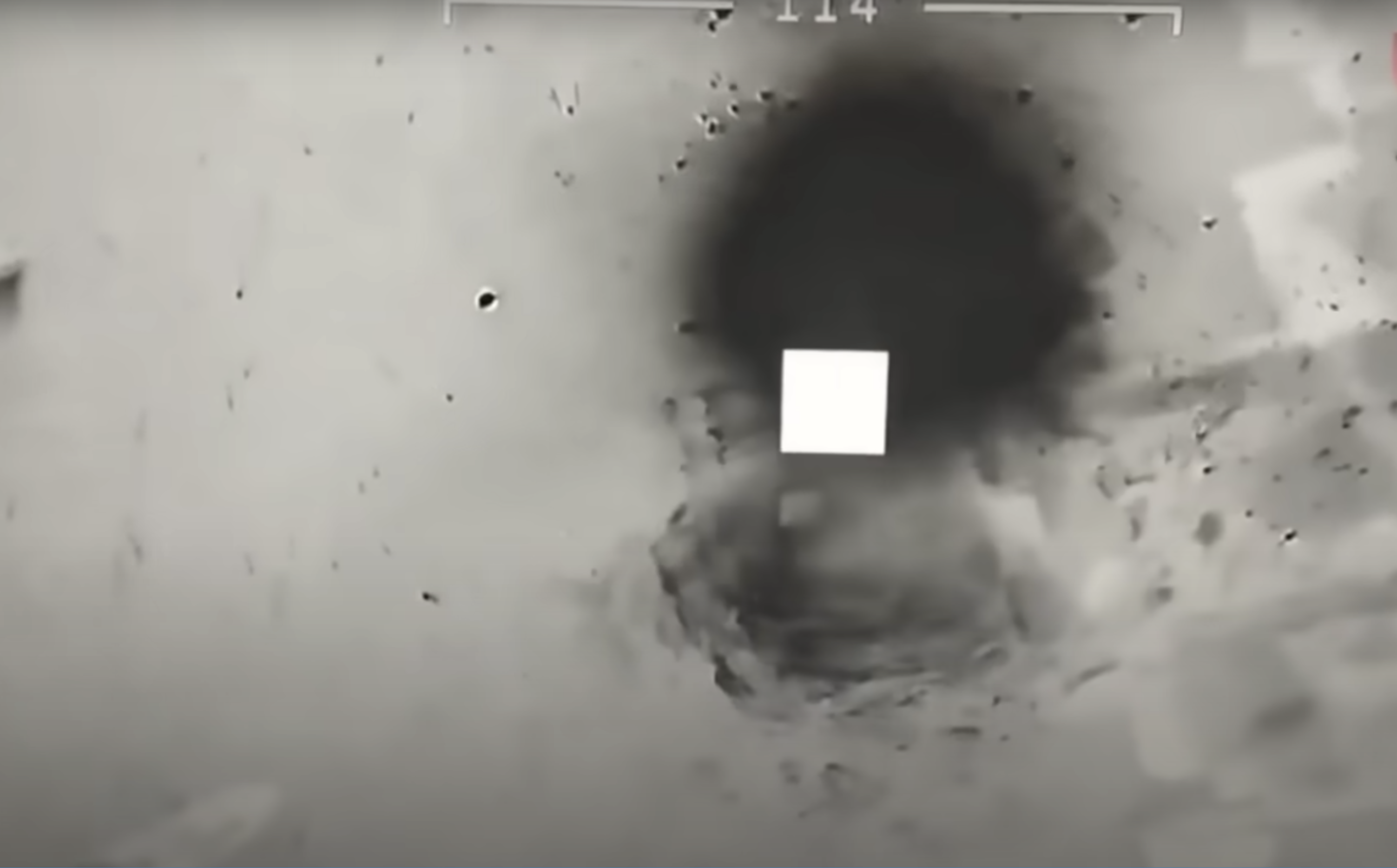
— Aside from TB2, what else could your company offer Ukraine? Is there anything being developed that can be discussed?
— Bayraktar TB2 is in serial production; now, Bayraktar Akıncı is in serial production. We have delivered Bayraktar Akıncı — more than 9 units — to the Turkish military. We have signed export contracts for it with different countries. For Bayraktar TB2 we have export contracts with 22 different countries. [Interviewer says “22” pointing at the TB2 model on the table then “4” and points at another model, transcriber is assuming it is the Akıncı. Haluk Bayraktar then confirms this number.] Now we are working on the unmanned fighter project, which is very new and we are solely financing it and it will be a new league, actually, in the unmanned systems arena. On the project of Akıncı and [the] unmanned fighter, we are cooperating with Ukraine in a very close fashion. Ukraine is one of the few countries who have technologies on the engines, so you have very good and effective engines and our close coordination and cooperation also helps Ukrainian engines take their place in the UAV market.
So Akıncı made its first flight with a Ukrainian engine, now we integrate more, different Ukrainian engines, too.
Unmanned fighters are also going to be equipped with two types of different Ukrainian engines, so these are our main platforms that we are working [on], but of course we are, as well — on the smaller scale platforms — we have some products. We have the mini-UAV. We have the vertical take-off platform. We also have other types of products in our inventory where we want them to work in coordination with these main platforms. So we build smaller scale platforms as well, in Baykar, working together with these main platforms.
— Which platforms are in the highest demand right now? TB2 tier or Akıncı tier? Or maybe other types?
— Right now, as Bayraktar TB2 and Bayraktar Akıncı are in serial manufacturing, we have demands for both of them, so our company has a fair amount of order backlog.
Our company’s operations are kind of booked for about 3 years right now.
So as these systems prove themselves on the field, more countries are interested in them — And specifically for the Bayraktar TB2 system where the performance to cost ratio is higher. It’s a system where you don’t pay as much as you need to pay for a fighter jet but instead you can get a whole system; you can establish a fleet, where you can control the borders of your country, where you can have 7 days/24 hours of endurance [and] surveillance activities in your country at a much lower cost than paying for a fighter jet. And even if you have fighter jets, these assets help them to be more effective. So it’s kind of an attractive product in that sense and also it’s reliable: it can fly under jamming environments; it can fly in all types of weather conditions; it has very high end networking system on the ground; it’s very flexible; with the antennas and the network structure on the ground, it’s well established, so it’s kind of become an attractive product in the UAV league.
— Last year Ukraine and Turkey signed a memorandum on joint production of Bayraktar drones and on the construction of a factory in Ukraine. Considering the current security situation, are the negotiations continuing? And have the plans to build a factory changed?
— We see Ukraine as our strategic partner. So we have long-term plans on the projects with Ukraine and we’ve had a lot of projects, actually, and we as Baykar embarked on building a factory in Ukraine, a research center and manufacturing excellence center where we wanted to build all the systems. Not just the fuselage, but the electronics, the software, everything we do here. We had that vision. In that regard we have our investment plans moving ahead right now, and so [for] these agreements we are in the project planning phase. Soon we want to start on the real, physical investment as well. We already have a structure — we have a company in Ukraine.
We already have a technical — engineering — team that supports Ukraine. But also we now want to make Ukraine a manufacturing base. It’s one of our ideals, our wish, that one day in the factory in Ukraine we will be able to build Bayraktar TB2, Bayraktar Akıncı, and also the new Bayraktar Kizilelma, the unmanned fighter (During the video interview Haluk Bayraktar calls this strike drone a Bayraktar Golden Apple. — Ed.).
So because the two platforms are using Ukrainian engines, Ukraine will become, with these platforms, [a place] where you do the engines and the platforms and the other subsystems altogether in one country. We think this will be a very strategic achievement that will benefit not only Ukraine but also Turkey. That will bring our relationship to a much higher level as well.
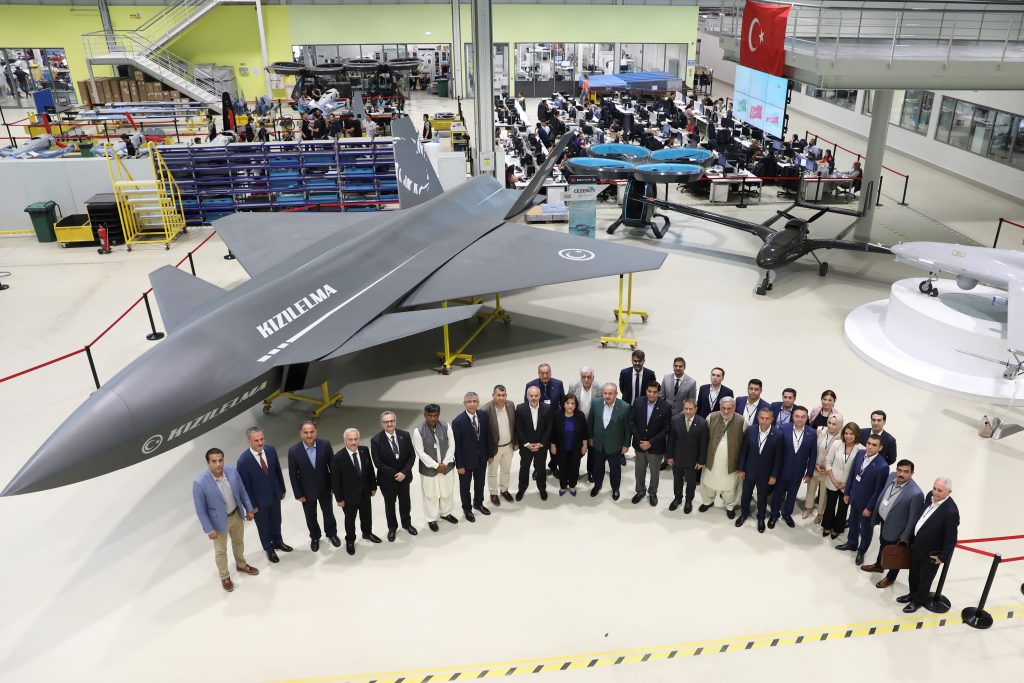
— Last question. Why did you decide to support Ukraine? Why Ukraine?
— It’s more than five years now that we are working together with our Ukrainian friends. We have built a lot of things altogether to make our countries closer. I personally believe the relationship of Turkey and Ukraine is a complementary, win-win type of relationship. We are neighbors, with the Black Sea in between. We are very close neighbors. There are no possible negatives so I always believe that this strategic relationship will benefit both of us. And the years of effort [that] we have put into building up these things — it has created a lot of friendships.
We have been together with many different Ukrainian authorities. Altogether we have made a lot of plans for our vision ahead. We already cooperate on many different areas so it’s kind of our duty, actually, to do our best for Ukraine, to support its homeland, to defend itself. And beyond everything, beyond these things, Ukraine is facing this aggression, and it’s totally baseless, meaningless. No one knows why, what’s the aim behind it, so we, as a humanitarian responsibility, we feel for the suffering people, for the civilians. So all these things together give us the responsibility to support and do our best for you.
— Thank you! Thank you for the conversation and thank you for the support that you and your country are providing to Ukraine in this war!
— Thank you and once again, Taras, I would like to thank you for your efforts that you do with all your team for your country. It is very valuable and I would like to let you know all our prayers and support are with Ukraine. We wish for this war to end and for Ukraine to proceed to progress under its own sovereignty and move ahead in a peaceful way. Thank you.
Let's create history together! Support "COME BACK ALIVE" Charity Foundation
DonateMore on topic
The Come Back Alive Foundation bought and transferred a Bayraktar TB2 complex to the Ukrainian military
26 Jul 2022, 18:13
"Come Back Alive" obtained a license to purchase lethal weapons
22 Jun 2022, 14:45